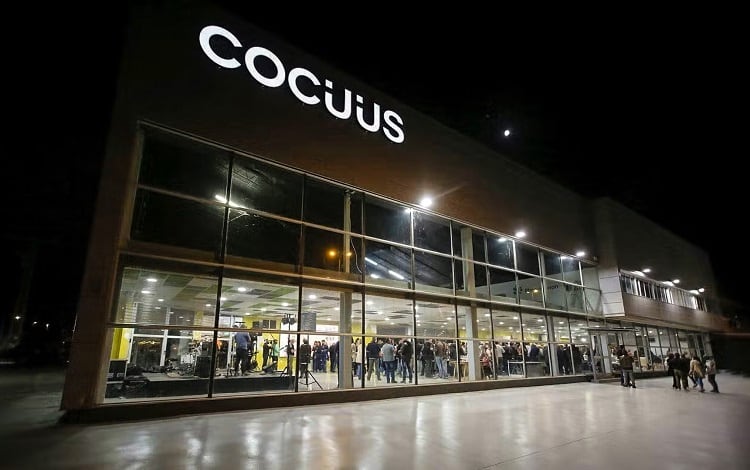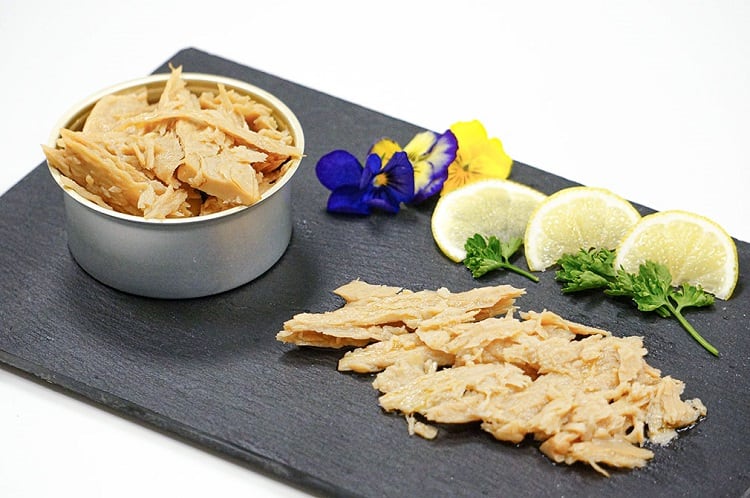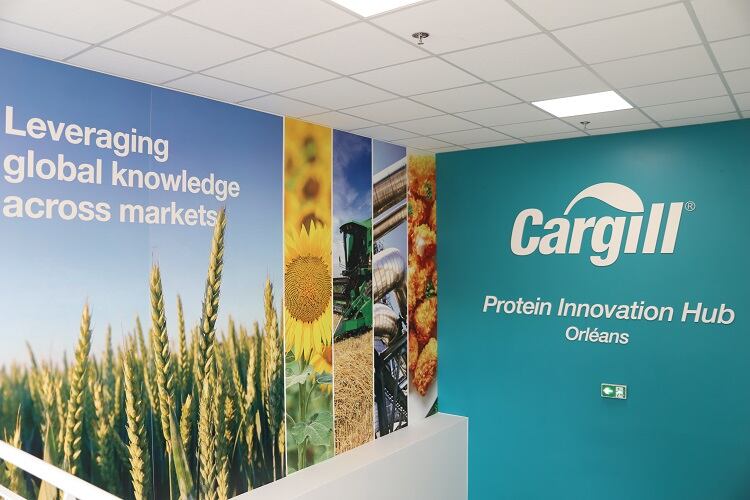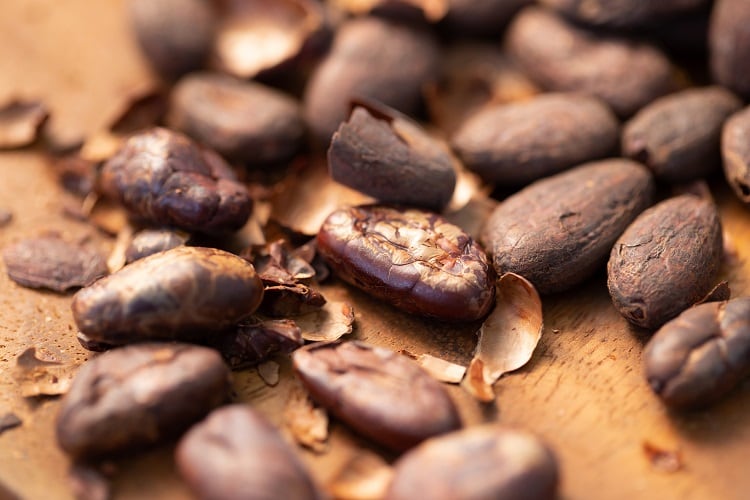Cargill has continued to diversify its portfolio in recent years, and now has a vested interest in protein of almost all forms. Whether made from animals, plants or microbes, protein demand is here to stay, believes the agrifood major.
Which protein sources is Cargill betting big on? And why is a diversified investment strategy important for one of America’s largest meat producers?
Cargill bets on animal-based protein: ‘Meat is not going away’
As the global population increases, more protein will be required. According to FAO estimates, global protein demand is expected to increase by 135% by 2050.
For Cargill, much of this global demand will continue to be supplied by conventional meat. “We don’t believe that animal-based protein is going away, but it will be complemented with more plant-based or microbial-based materials,” Geert Maesmans, innovation leader for Health & Nutrition, Cargill Food Solutions, told FoodNavigator.
Cargill is a big player in beef and poultry, harvesting more than eight million cattle and producing nearly eight billion pounds of boxed beef and by-products in North America annually.
While increasingly diversifying its alternative protein portfolio, meat remains an important sector for the agrifood major. “We keep investing in [alternative] protein, as we keep investing in and growing our animal protein businesses,” confirmed Maesmans, adding that the company is not going to ‘shy away’ from its animal protein interests.
Already this year, Cargill has acquired two meat processing plants in the US, with the aim of expanding its production and distribution of supermarket case-ready beef and pork to retailers.
But conventional meat is not the only ‘meat’ category to have seen Cargill dollars. Cultivated meat – whereby animal stem cells are fed culture medium and grown in bioreactors – is also on the agrifood major’s radar. Over the last five years alone, the company has invested in a range of cultivated meat producers, from Memphis Meats to Aleph Farms, Wildtype and Upside Foods.

“We keep investment in [different proteins] because as the world population keeps growing, that need for more protein is not going to disappear.”
Investing in alt proteins amid plant-based meat ‘headwinds’
Just as Cargill keeps firmly tied to conventional meat production, it is also a global player in the plant protein market. “We’re still major in agricultural-based raw materials. That plant protein base…is the core of what we do.”
A proportion of those proteins go into feed and a proportion goes into plant-based meat and dairy alternatives. Although appetite appears to have dropped for plant-based meat, it is still a space Cargill ‘very much’ believes in. “It has been a category that is still making steps forward and continues to grow, continues to attract new types of participants…on the production side and the consumer side.”
But 2023 was the year people realised a balance needs to be struck between quality, affordability and availability. With ‘headwinds’ affecting all these areas, the category has experienced a ‘slower pickup’ than some had anticipated, Maesmans continued.
Affordability is one factor of particular relevance over the last year, with the cost-of-living crisis tightening consumer purse strings. The innovation leader expects the plant-based sector has ‘quite a long way to go’ before price parity can be achieved with what are very ‘mature’ industries: meat and dairy.
The cost-of-living crisis, coupled with supply chain disruptions, has fuelled a ‘whiplash’ effect on people and pricing, believes Maesmans. Although this has created some ‘slowdown’, he believes ‘the trend is still there’.
Beyond plant proteins, Cargill also supplies other ingredients in plant-based alternative matrices. “If you look at meat analogues, protein is only part of what’s in there: there’s also carbohydrates and fats.”
Last year, Cargill and Barcelona-based start-up Cubiq Foods signed product co-development and commercial go-to-market agreements to develop the latter’s fat technology for the plant-based meat market.
Why Cargill believes in 3D printing technology
Cargill is also investing in new technologies to develop plant-based meat alternatives. Another Spanish start-up, Cocuus, has received investment from the agrifood major to ramp-up production of its 3D-printed plant-based bacon. Cocuus also plans to turn its attention to 3D-printed plant-based tuna and shrimp.
At Cocuus’ 3D printing facility in northern Spain, it aims to produce up to 1,000 tons of 3D-printed plant-based bacon this year using its bioprinting machine. The product has been on the market under the Foody’s brand since October 2023.
From Cargill’s perspective, the Cocuus investment is part of its strategy to ‘delight’ consumers with nutritious and sustainable foods, and ultimately encourage repeat purchase.
While undoubtedly part of that ‘delight’ comes from ingredients and formulation, the other part comes from technology. “Vegan bacon is a nice example of that…The reason we invest, and the reason why we’ve been working together with Cocuus for a quite a while is exactly because of that: it’s about searching for the technology that enables you to delight those customers and consumers…”
The company believes the quality is there, and by turning it into an at-scale ‘mass market solution’, then affordability and availability will follow.

Cocuus is not blinkered by plant-based ingredients only. The start-up is also using its proprietary technology to upcycle meat off-cuts and trimmings to 3D print prime cuts.
It is hoped the technology will offer the meat industry a way of supplying nutritionally balanced meat-based products, for instance steaks enriched with Omega 3 or low-cholesterol meat cuts.
Backing the fungi kingdom and ‘keeping an eye’ on other microbes
In further diversifying Cargill’s protein portfolio, the supplier is also doubling down on its partnership with mycoprotein maker ENOUGH (formerly 3f Bio) by

investing in its most recent (Series C) funding round and signing a commercial agreement to use and market its fermented protein ABUNDA.
ENOUGH’s production facility, built in 2022, is co-located alongside a Dutch Cargill facility in Sas van Gent. To make ABUNDA mycoprotein, ENOUGH feeds fungi with sugars sourced from grain in a fermentation process it likens to beer and wine production. ENOUGH sources the wheat sugars from its next-door neighbour Cargill.
The result is a mycoprotein ingredient with a neutral flavour and meat-like texture suitable for making alternative meat, seafood, and dairy products. From a sustainability perspective, ENOUGH claims its mycoprotein is up to 15 times more efficient than protein from beef, using up to 93% less water, 97% less feed, and associated with 97% fewer CO2 emissions.
According to Belgin Kose, managing director at Cargill Meat and Dairy Alternatives, Cargill is strengthening the partnership because of growing global demand for protein, including more sustainably produced protein. “
“Mycoprotein is an emerging ingredient with a disruptive role to play due to its many benefits including a meat-like texture, protein profile, scalability and sustainability. We remain committed to bringing alternative and traditional protein source options to the table, and our collaboration with ENOUGH is one of the ways we can realize our purpose to nourish the world in a safe, responsible and sustainable way.”
Another microorganism-based process, precision fermentation (whereby microbes are used as production factories to produce complex proteins, such as dairy), is also on Cargill’s radar, Cargill Food Solutions’ Maesmans revealed.
“There are already a few [products] out there, but definitely not at the scale and cost to nourish the entire world population. So it’s an emerging technology…It will require further investment not only in terms of making it come true, but also investments in how to get regulatory approvals and how to get consumer acceptance.”





